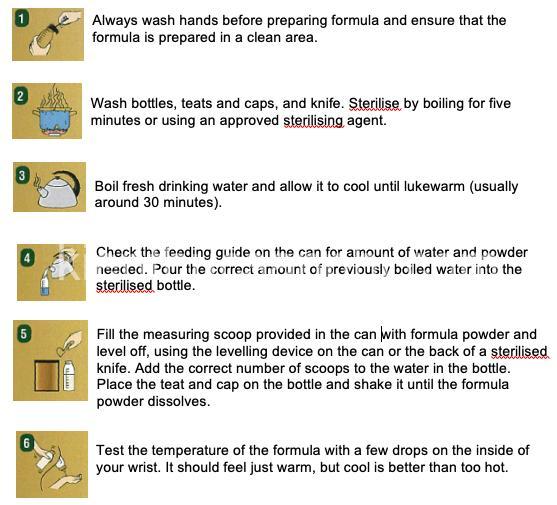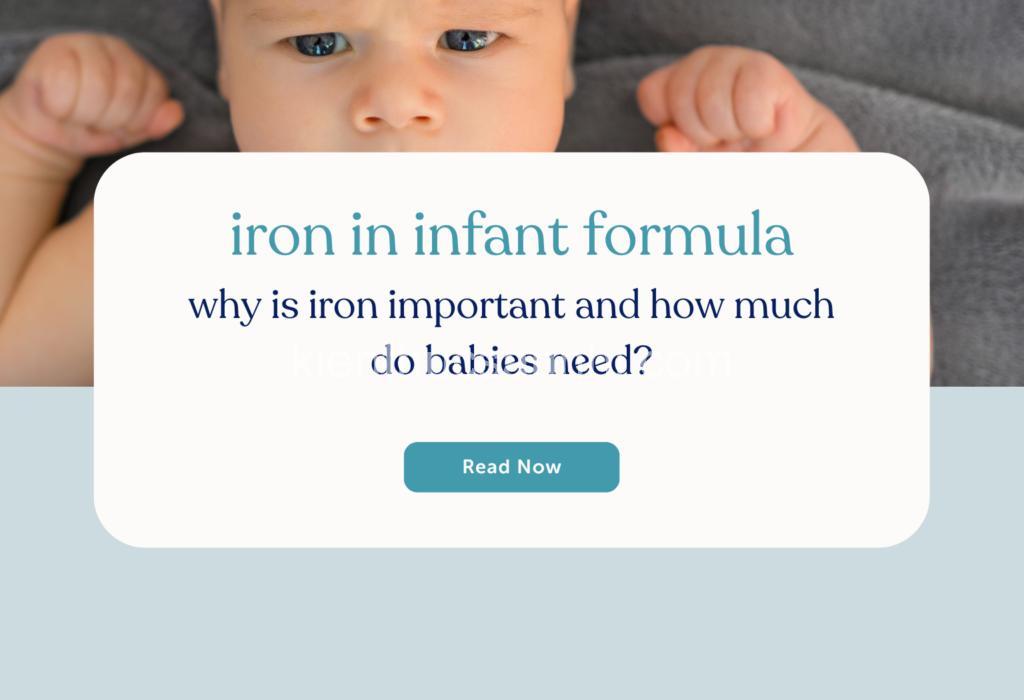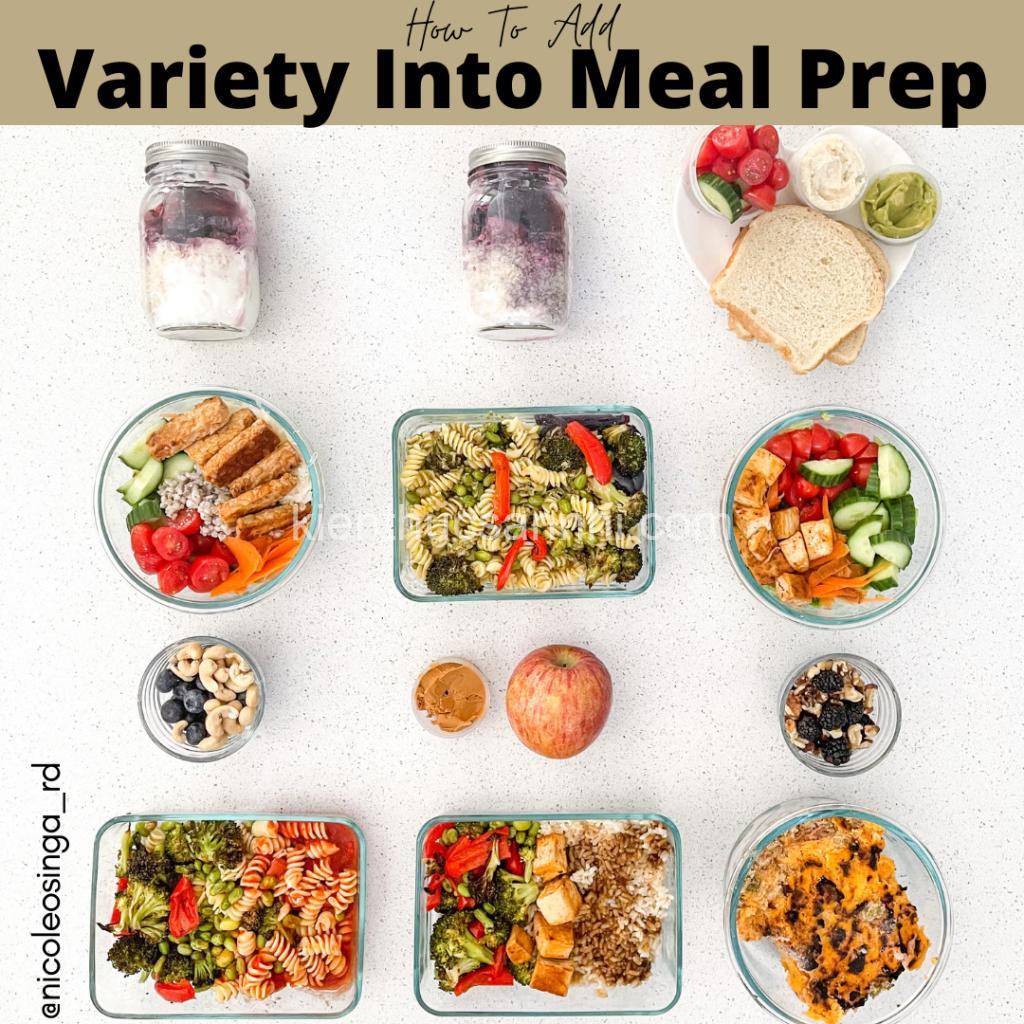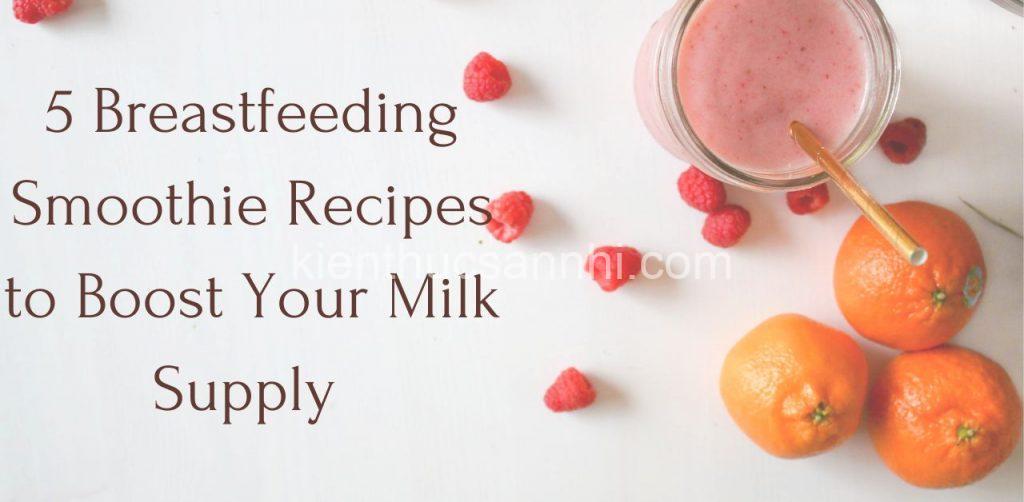
Formula Feeding Benefits: Convenience, Flexibility, and Control. In today’s article, kienthucsannhi.com will explore with you in the most detailed and complete way. See now!
Understanding the Advantages of Formula Feeding
Formula feeding, an alternative to breastfeeding, offers a range of benefits that can greatly impact your experience as a parent. While breastfeeding is widely recognized for its advantages, formula feeding is a valid and often beneficial choice for many families. The decision to formula feed is a personal one, guided by your individual needs, circumstances, and your baby’s health. It’s important to acknowledge that both breastfeeding and formula feeding are capable of providing your baby with the essential nutrition they need to thrive.

Convenience and Flexibility: A Key Benefit of Formula
Formula feeding brings a significant level of convenience and flexibility into your parenting journey. It allows for shared feeding responsibilities between parents, fostering a sense of partnership and equity in childcare. Both parents can actively participate in feeding, bonding with their baby, and relieving each other. This shared responsibility can be particularly helpful for working parents or those with busy schedules.
Another notable advantage of formula feeding is its flexibility. It offers a greater degree of control over feeding schedules, allowing you to adapt to your baby’s needs and your own lifestyle. For example, if you need to return to work, formula feeding allows for easier transitions and provides greater flexibility in terms of feeding times. You can also more easily travel and go out without having to worry about breastfeeding logistics.
Entity: Formula | Attribute: Type | Value: Ready-to-feed, Concentrate, Powder
Entity: Formula | Relation: Is a type of | Entity: Infant Nutrition
Semantic Triple: Subject: Formula | Predicate: Is a type of | Object: Infant Nutrition
Nutritional Control and Customization
Formula feeding provides you with a greater degree of control over your baby’s nutrition. Unlike breast milk, which varies in composition based on the mother’s diet and health, formula offers a consistent and measurable source of nutrients. This means you can be sure that your baby is receiving the exact amounts of vitamins, minerals, and other essential elements they need to grow and develop. This consistency can be particularly reassuring for parents who are concerned about their baby’s nutritional intake.
Furthermore, formula feeding allows for customization to meet specific needs. There are various formulas available, catering to different dietary requirements, including formulas for babies with allergies, lactose intolerance, or premature birth. You can work with your pediatrician to choose the formula that best meets your baby’s unique needs.
Entity: Formula | Attribute: Brand | Value: Similac, Enfamil, Gerber, etc.
Entity: Formula | Relation: Is produced by | Entity: Company
Semantic Triple: Subject: Formula | Predicate: Is produced by | Object: Company
Addressing Potential Health Concerns
While breastfeeding is often considered the gold standard in terms of health benefits, formula feeding can also address certain health concerns. For babies with lactose intolerance, formula made with soy or other alternatives can provide a safe and nutritious source of milk. Additionally, formula feeding can help prevent some breastfeeding challenges, such as nipple pain or latch difficulties, which can affect both mother and baby. This can be particularly beneficial for mothers who experience discomfort or pain during breastfeeding.
It is important to note that formula feeding can potentially increase the risk of certain infections, such as ear infections. However, breastfeeding also comes with its own set of potential health risks, and the decision to formula feed should be made in consultation with your pediatrician.
Entity: Infant | Relation: Requires | Entity: Nutrition
Semantic Triple: Subject: Infant | Predicate: Requires | Object: Nutrition
Emotional and Practical Considerations
For some mothers, the decision to formula feed is driven by emotional and practical considerations. Breastfeeding can be a challenging experience, and some mothers may struggle with latch difficulties, milk supply issues, or discomfort. Formula feeding can offer a sense of relief and control, allowing mothers to regain a sense of agency and reduce feelings of anxiety or inadequacy.
Formula feeding can also empower fathers to participate actively in feeding and bonding with their babies. This can be particularly valuable for fathers who are eager to contribute to the caregiving process and build a strong connection with their child.
Entity: Parent | Relation: Provides | Entity: Care
Semantic Triple: Subject: Parent | Predicate: Provides | Object: Care
Addressing Potential Drawbacks of Formula Feeding
While formula feeding offers numerous benefits, it is important to acknowledge potential drawbacks. One of the most significant concerns is the cost. Formula can be expensive, especially compared to breastfeeding, which requires no financial outlay beyond basic supplies like nursing pads. The cost can be a significant factor for families with limited budgets, and it is crucial to factor in the long-term expenses of formula feeding.
Another drawback is the environmental impact of formula production and packaging. Formula production requires a significant amount of resources, including water, energy, and agricultural land. The packaging often consists of plastic and cardboard, contributing to waste and pollution. However, it’s encouraging to note that many formula manufacturers are now focusing on more sustainable packaging options, such as recycled materials and biodegradable containers.
Entity: Formula | Attribute: Cost | Value: High, Moderate, Low
Entity: Formula | Relation: Is a type of | Entity: Infant Nutrition
Semantic Triple: Subject: Formula | Predicate: Is a type of | Object: Infant Nutrition
Finally, there are potential health risks associated with formula feeding. While formula is designed to mimic breast milk, it does not contain the same complex array of antibodies and immune factors. This means that formula-fed babies may be at a slightly higher risk of developing certain infections, such as ear infections and allergies. However, these risks are relatively low, and with proper care and hygiene practices, you can significantly reduce the likelihood of complications.
A Balanced Approach to Infant Feeding
Ultimately, the decision to breastfeed or formula feed is a personal one. Both options have their advantages and disadvantages, and the best choice depends on your individual circumstances, needs, and your baby’s health. It is essential to consult with your pediatrician for personalized advice and guidance on the best feeding method for your baby. They can help you weigh the pros and cons of each option, considering your family’s specific situation and your baby’s individual needs.
Entity: Infant | Relation: May have | Entity: Health Condition
Semantic Triple: Subject: Infant | Predicate: May have | Object: Health Condition
Remember that there is no right or wrong answer when it comes to infant feeding. What matters most is that your baby is receiving the nutrition they need to grow and thrive. Whether you choose to breastfeed, formula feed, or combine both methods, it is essential to approach the decision with an open mind, trust your instincts, and seek guidance from qualified healthcare professionals.
Frequently Asked Questions about Formula Feeding
What are the main advantages of using formula over breastfeeding?
Formula feeding offers several key advantages:
- Convenience and flexibility: It allows for shared feeding responsibilities, offers more scheduling flexibility, and provides greater freedom for the mother in terms of diet and activities.
- Nutritional control: Formula provides a consistent and measurable nutritional intake, allowing for customization based on specific dietary needs or allergies.
- Potential health benefits: It can be beneficial for babies with certain health conditions, such as lactose intolerance, and can prevent breastfeeding-related challenges like nipple pain or latch difficulties.
- Emotional benefits: It can provide emotional relief and control for mothers struggling with breastfeeding, and allows fathers to actively participate in feeding and bonding with the baby.
Are there any potential risks associated with using formula?
While formula feeding is generally safe, there are some potential risks:
- Cost: Formula can be expensive, especially for long-term use.
- Environmental impact: Formula production and packaging contribute to waste and environmental pollution.
- Potential health risks: Formula-fed babies may be at an increased risk of certain infections, such as ear infections, and may have a higher risk of developing allergies. However, with proper care and hygiene practices, these risks can be minimized.
How do I choose the right formula for my baby?
Choosing the right formula for your baby involves considering several factors:
- Your baby’s age: Different formulas are designed for different age groups.
- Your baby’s health: If your baby has allergies, lactose intolerance, or other health conditions, you will need to choose a formula that is suitable for their needs.
- Your budget: Formula can range in price, so it is important to consider your budget when making a decision.
- Your pediatrician’s recommendations: Your pediatrician can help you choose the best formula for your baby based on their individual needs.
Can I switch between breastfeeding and formula feeding?
Yes, it is possible to switch between breastfeeding and formula feeding. This is known as mixed feeding. It is important to talk to your pediatrician about how to introduce formula into your baby’s diet safely and gradually.
How can I learn more about formula feeding?
You can find reliable information about formula feeding from a variety of sources:
- Your pediatrician: Your pediatrician is the best resource for personalized advice and guidance on formula feeding.
- The American Academy of Pediatrics (AAP): The AAP provides evidence-based information about infant feeding, including formula feeding.
- The World Health Organization (WHO): The WHO also offers comprehensive guidelines on infant feeding, including information about formula feeding.
- Reputable online resources: There are many websites and organizations that provide accurate and up-to-date information about formula feeding.
Conclusion
Ultimately, the decision of whether to breastfeed or formula feed is a personal one. Both options offer unique benefits, and the best choice depends on your specific needs and circumstances. Remember to consult with your pediatrician for personalized advice and guidance on the best feeding method for your baby.
If you have any questions or comments about formula feeding, please leave a comment below. You can also find more valuable information about raising pets on kienthucsannhi.com, our website dedicated to providing accurate and reliable information about animal care.







